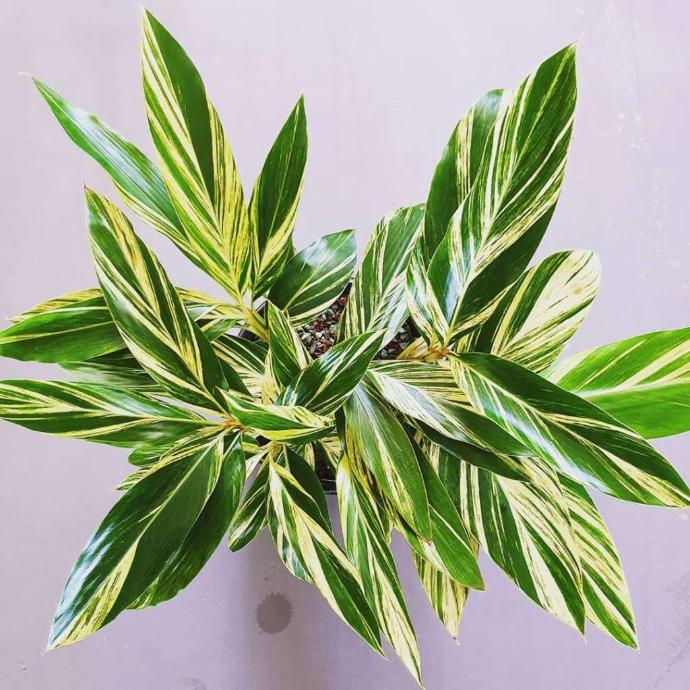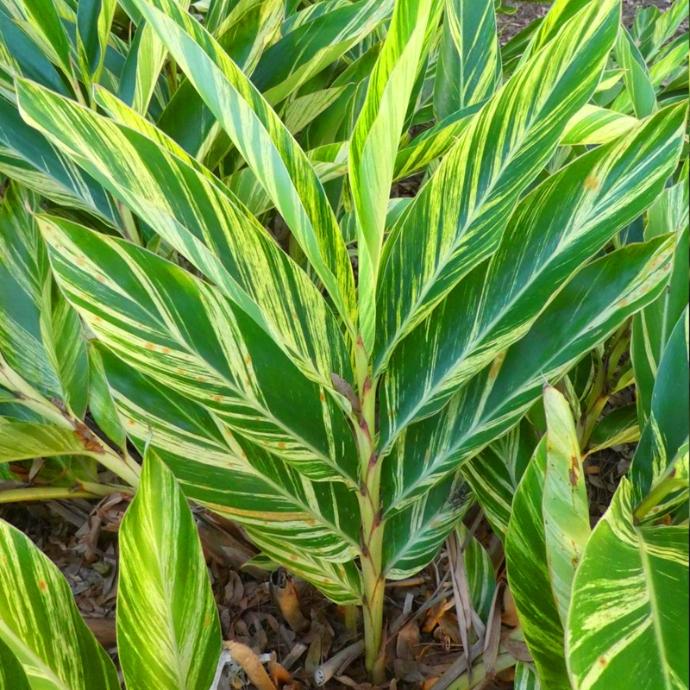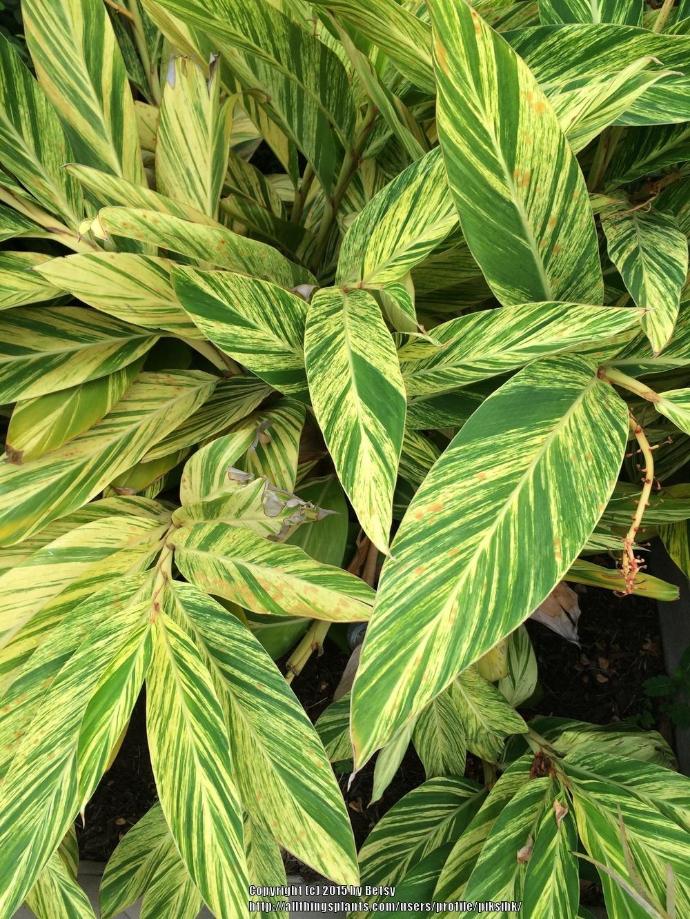Alpinia verigated Plant
| Alpinia zerumbet 'Variegata' is a medium-height plant with medium growth, thrives in partial shade and well-drained soil, and is used medicinally but is not edible. |

Habit
Herbacious
Height
Medium
Growth
Medium
Soil
Well-drained
Shade
Partial
Moisture
High
Edible
No
Medicinal
Yes
Origin
Southeast Asia
Climatic Condition
Tropical, Humid
Temperature (°)
20-30
Humidity (%)
60-80%
Potting media
Peat+Perlite
Fertilizers
Balanced NPK(10:10:10)
Watering
Regular, Keep Moist
Plant Weight
300-500 g
Flowering Time
Summer to Fall
Soil Ph level
6.0-7.0
Water Ph level
6.0-7.5
Soil EC
1-2 dS/m
Yield Per Plant
Ornamental
NPK ratio
10:10:10
life Span
20 yrs
Health Benefits
Anti-inflammatory
Suggested Grow Media or Potting Mix ?
| 40% peat moss, 30% perlite, 30% compost |
Suggested Fertigation/Fertilizers
Apply monthly with liquid organic fertilizer
Common Diseases and Remedies
Root Rot, Leaf Spot, Aphids, Spider Mites, Rust.
Yellowing leaves, browning spots, wilting, pustules.
Copper oxychloride, systemic insecticides.
HEALTH BENEFITS
Alpinia, particularly the variegated variety (often referred to as Alpinia zerumbet), is a tropical plant known for its ornamental value, but it also has several potential health benefits, especially in traditional medicine. Here are some of its potential health benefits:
- Anti-inflammatory properties: Alpinia has been used in traditional medicine for its anti-inflammatory effects. Some studies suggest that its extracts may help reduce inflammation in the body.
- Antioxidant effects: The plant contains compounds that can help fight oxidative stress, which is linked to various chronic diseases and aging. Antioxidants help neutralize free radicals in the body.
- Digestive aid: Alpinia is sometimes used to improve digestion. It may help with digestive issues such as indigestion, bloating, and nausea.
- Antibacterial and antifungal: Some research has found that Alpinia extracts have antibacterial and antifungal properties, potentially helping to prevent infections.
- Pain relief: Alpinia may also be used to relieve pain, particularly in cases of arthritis or muscle soreness, thanks to its anti-inflammatory and analgesic properties.
- Respiratory support: Traditionally, Alpinia has been used to treat respiratory conditions such as coughs and colds, possibly due to its antimicrobial and soothing properties.
It's important to note that while Alpinia has been traditionally used for these benefits, more scientific research is needed to fully understand its efficacy and safety. If you're considering using it for medicinal purposes, it's always a good idea to consult with a healthcare professional.

